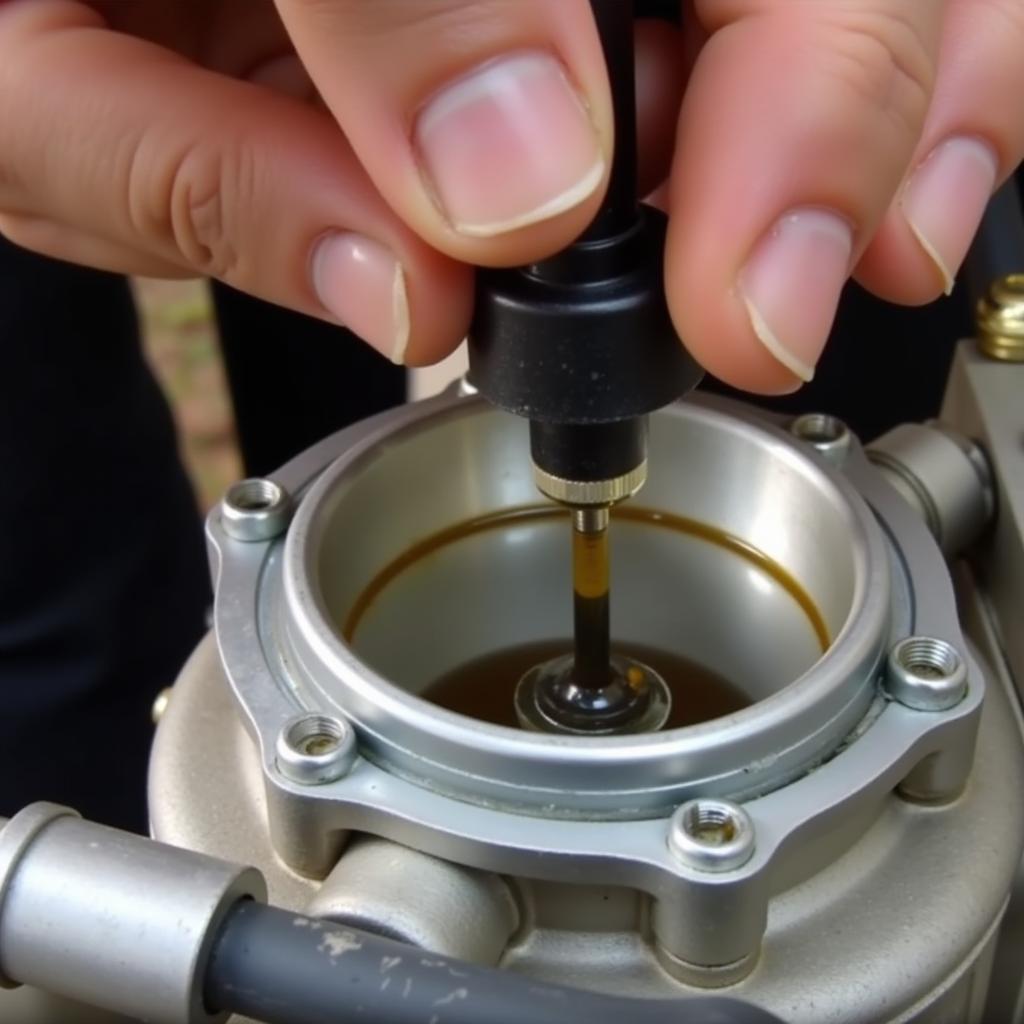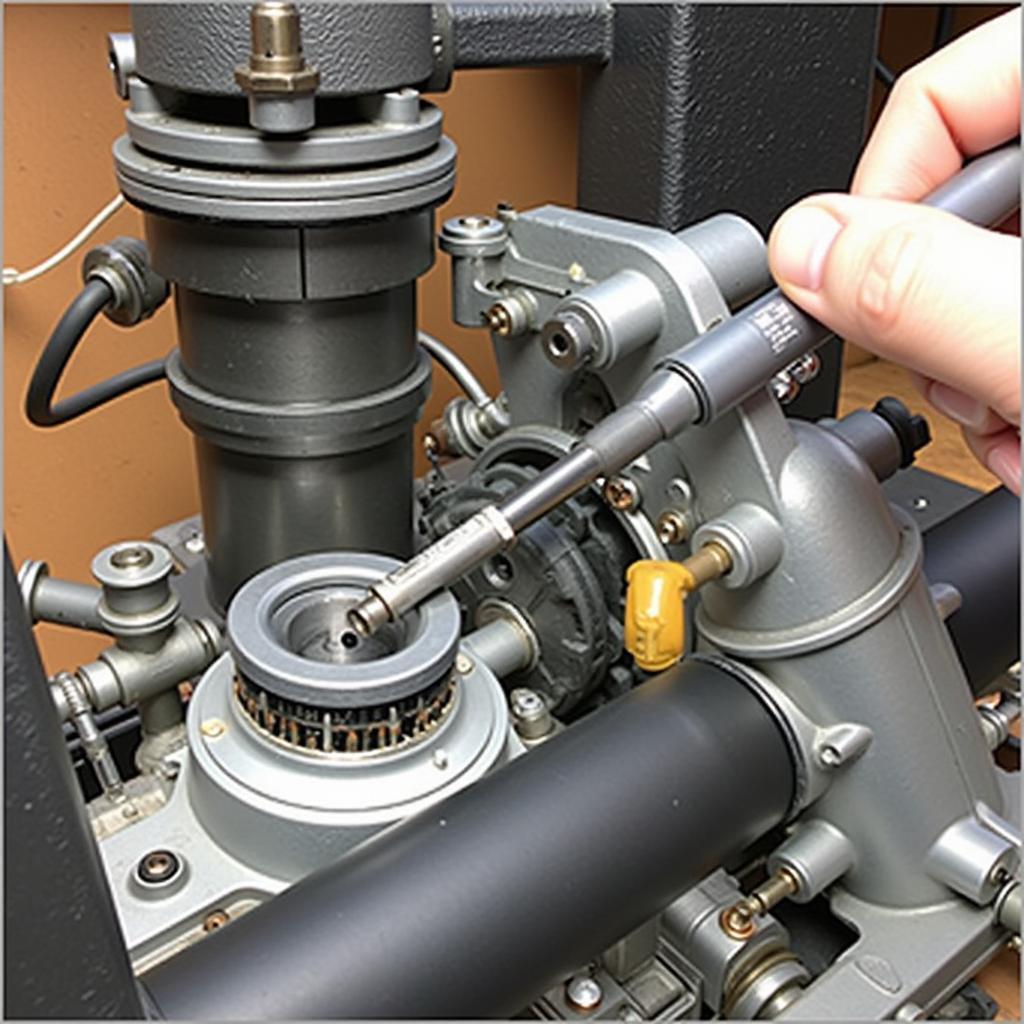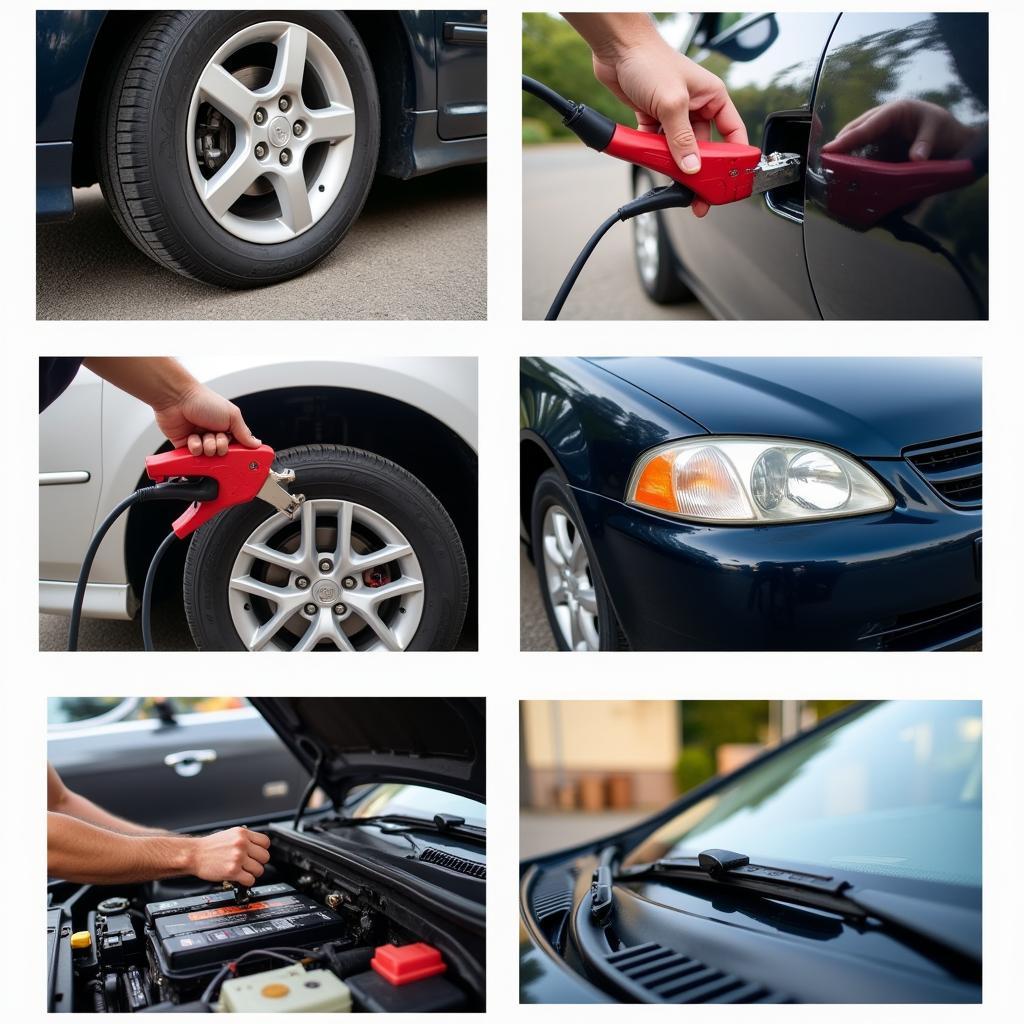A car running too rich with a Holley 750 carburetor can be a frustrating issue, but often it’s a relatively straightforward fix. This article will guide you through the common causes and solutions for a rich-running Holley 750, helping you get your engine purring smoothly again.
Understanding a Rich Running Condition with a Holley 750
A rich condition means the engine is getting too much fuel compared to air. With a Holley 750, this can manifest as black smoke from the exhaust, rough idling, poor fuel economy, and even a strong gasoline smell. Ignoring a rich condition can lead to fouled spark plugs, catalytic converter damage, and decreased engine performance.
Common Causes and Solutions for “Car Running Too Rich Fix Holley 750”
Float Level Adjustment
One of the most frequent culprits for a rich-running Holley 750 is an incorrect float level. A float level that’s too high allows excess fuel into the carburetor bowls, flooding the engine.
- Remove the sight plugs on the side of the carburetor to observe the fuel level.
- Adjust the float level by gently bending the float tang until the fuel level is just below the sight plug opening.
- Replace the sight plugs.
 Adjusting the Float Level on a Holley 750 Carburetor
Adjusting the Float Level on a Holley 750 Carburetor
Power Valve Issues
A faulty or incorrectly sized power valve can also contribute to a rich condition. The power valve opens under high engine load to provide extra fuel. If it’s stuck open or the wrong size, it will dump too much fuel into the engine.
- Check the power valve for leaks or damage.
- Ensure the correct power valve size is installed for your engine’s vacuum. A vacuum gauge can help you determine this.
- Replace the power valve if necessary.
Checking the Accelerator Pump
The accelerator pump provides a squirt of fuel when you press the gas pedal. A leaky or improperly adjusted accelerator pump can cause excessive fuel delivery.
- Inspect the accelerator pump diaphragm for tears or holes.
- Adjust the accelerator pump stroke if needed. Too long a stroke will deliver too much fuel.
- Replace the accelerator pump diaphragm if damaged.
 Inspecting the Holley 750 Accelerator Pump Diaphragm
Inspecting the Holley 750 Accelerator Pump Diaphragm
Choke Adjustment
A choke that’s stuck closed or not opening fully will cause a rich condition, especially during warm-up.
- Verify the choke opens completely when the engine is warm.
- Adjust the choke setting if needed.
- Lubricate the choke linkage to ensure smooth operation.
Jetting Issues: Addressing “Car Running Too Rich Fix Holley 750” Directly
Incorrectly sized jets are a common culprit for a rich running condition. If your jets are too large, they will allow too much fuel to flow into the engine.
- Determine the correct jet size for your engine combination. Consult a Holley tuning guide or seek advice from a carburetor specialist.
- Replace the jets with the appropriate size.
“Choosing the right jets for your Holley 750 is crucial. Don’t just guess. Use a vacuum gauge and a systematic approach to dial in the perfect air/fuel mixture,” advises John Miller, a seasoned automotive technician with over 20 years of experience.
“Remember, a little patience goes a long way when tuning a carburetor. Make small adjustments and test thoroughly after each change,” adds Susan Davis, a performance engine builder and Holley expert.
Conclusion
Fixing a car running too rich with a Holley 750 carburetor often involves addressing a few key areas: float level, power valve, accelerator pump, choke, and jetting. By systematically checking and adjusting these components, you can achieve the optimal air/fuel mixture for your engine. Don’t hesitate to contact AutoTipPro at +1 (641) 206-8880 or visit our office at 500 N St Mary’s St, San Antonio, TX 78205, United States for personalized assistance with your Car Running Too Rich Fix Holley 750 issue.






Leave a Reply